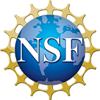
Program Solicitation: Broadening Participation in Computing (BPC)
The National Science Foundation’s (NSF) Directorate for Computer and Information Science and Engineering (CISE) is currently accepting proposals from the computing community for Broadening Participation in Computing (BPC) projects aimed at increasing the representation of historically underrepresented groups in the discipline. These groups may include women, persons with disabilities, Blacks and African Americans, Hispanics, American Indians, Alaska Natives, Native Hawaiians, and Pacific Islanders.
The BPC program supports three categories of awards:
- Alliances: Alliances operate across multiple stages of the academic pipeline and address one or several intended groups that are underrepresented. Existing Alliances with documented impact on BPC may apply for additional funding.
- Demonstration Projects (DPs): Typical DPs pilot innovative programs that, once fully developed, could be incorporated into the activities of an existing or new Alliance, or otherwise scaled up for widespread impact. Examples include projects proposed by a single institution or those that focus on a single underrepresented community, a single point in the academic pathway, or a single impediment to full participation in computing.
- Supplements: Supplements to existing CISE research awards are intended to engage more members of the computing research community in significant BPC efforts as part of a project’s BPC plan.
The deadline for submitting proposals is June 14, 2021 by 5 PM submitter’s local time.
Proposals may only be submitted by institutions of higher education, non-profit or non-academic organizations, and state and local governments. For more information, please review the program solicitation in its entirety by clicking the link provided below.







